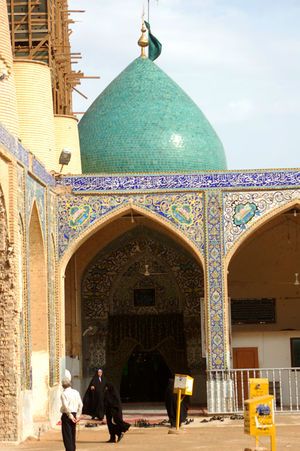In the annals of Islamic history, Hani Ibn Urwah emerges not merely as a figure of the past, but as a luminous paragon of loyalty, advocacy, and moral rectitude within the Shia tradition. His narrative intertwines with the historical trajectory of the early Islamic community, encapsulating the essence of unwavering allegiance to principles and the pursuit of justice. To grasp the significance of Hani Ibn Urwah within Shia teachings, one must delve deeper into both his life and the sociopolitical context that shaped his convictions.
Hani Ibn Urwah, a protégé of the illustrious Imam Ali, epitomizes the virtues espoused by Shia Islam, bringing to life the metaphorical tapestry of loyalty that runs through the veins of Islamic ethos. Just as a steadfast oak withstands the fiercest storms, Hani’s unwavering commitment to Imam Hussein during the tumultuous period leading to the Battle of Karbala portrays a profound dedication to justice and truth. This metaphor of resilience serves as a beacon of hope for adherents, showcasing the importance of standing firm in one’s beliefs, even when faced with insurmountable odds.
Born in Kufa, a nucleus of scholarly and political discourse during the early Islamic era, Hani’s life unfolded amidst a kaleidoscope of sociopolitical intrigues. His steadfastness in the face of formidable adversity is most notably illuminated during his fearless support for Imam Hussein’s cause. Hani’s actions transcended mere allegiance; they demonstrated a profound understanding of the Islamic principles of justice, equity, and self-sacrifice. The teachings of Shia Islam emphasize that true faith is not just a silent affirmation but an active engagement in the fight against tyranny and injustice, a theme brilliantly illustrated by Hani’s life.
The events leading up to the Battle of Karbala serve as a critical lens through which to appreciate Hani Ibn Urwah’s contributions. When Imam Hussein, faced with a dire choice between fealty to a corrupt regime and the quest for justice, chose the latter, Hani emerged as one of his most devoted supporters. His commitment represented not only personal loyalty but also epitomized a collective aspiration for the restoration of righteous governance grounded in ethical principles. Hani’s multifaceted persona reveals the quintessential Shia belief that faith must manifest in tangible action, particularly in times of moral crisis.
Tags
Share this on:
[addtoany]


